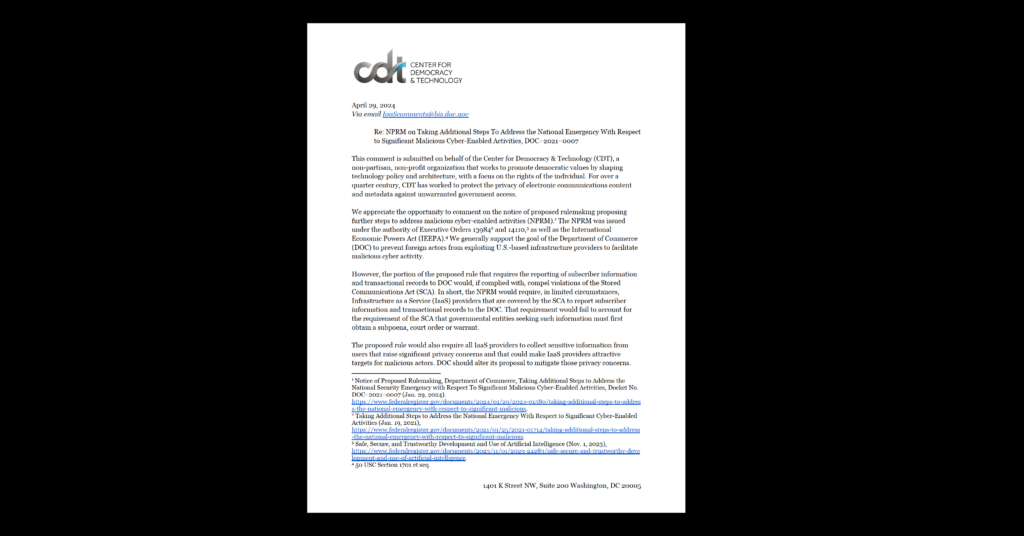Should Government Mandate “Backdoors” for Snooping on the Internet?
According to reports, the FBI is asking for the authority to require all Internet communications platforms build in a "backdoor" allowing law enforcement easy wiretapping access. This proposal could impact the Internet in three vital areas.
First, security could be endangered because, ironically, easy-to-access backdoors invite hackers – whether foreign–governments, criminals or other malicious actors – to find those doors to perpetrate crimes and threaten national security.
Second, our personal privacy will be further jeopardized as we edge closer and closer to being a surveillance state. In 2009, 2,376 federal and state wiretaps were conducted in criminal investigations, a figure that eclipses any other year; 82 percent of captured communications were non-incriminating.
Finally, innovation, the very trait that brought the Internet into being and allowed it to flourish, will be put at risk. If the FBI's proposal goes through, what will it mean for innovation to have government be the final arbiter of technical design?
In her latest ABC News column Should Government Mandate Backdoors for Snooping on the Internet? CDT President Leslie Harris addresses these concerns as well as the international ramifications of the FBI's proposal.
Secretary of State Clinton's historic speech on 21st Century Statecraft elevated the Internet as a full-blown tool of diplomacy and human freedom. In taking the bold step to put Internet freedom squarely in the center of U.S. foreign policy, U.S. policies have been put in the spotlight as well.
Those efforts to bolster America's moral authority on Internet freedom are endangered or at very least, contradicted, by moves such as this current FBI proposal.


